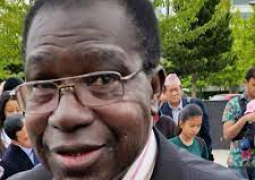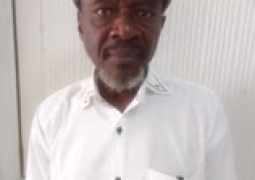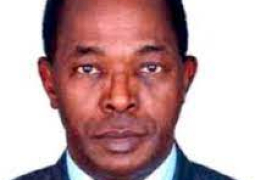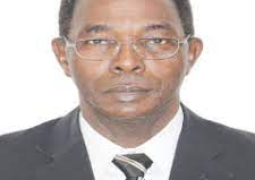
From brutal assaults to amputations, women bear the scars of a society slow to protect them.
Wife beating remains a deeply entrenched and pervasive issue in The Gambia, mirroring broader patterns of gender-based violence across the country. Despite the existence of legal frameworks designed to protect women, cultural norms, patriarchal values, and weak enforcement mechanisms continue to hinder meaningful progress.
According to the 2019–2020 Gambia Demographic and Health Survey, nearly 40 per cent of married women have experienced physical, sexual, or emotional abuse by their partners. Alarmingly, more than half of women and a significant number of men believe that a husband is justified in beating his wife under certain conditions. These beliefs, deeply rooted in tradition and misinterpretations of religion, have normalized abuse and silenced many survivors.
Tragically, violence against women often escalates to extreme brutality. Last year, a man was convicted after attacking his wife with a cutlass, leading to the amputation of her leg. In a more recent case, another man used a hammer on his wife, causing severe injuries to her hands and legs. These horrific acts have ignited public outrage and sparked heated conversations on social media, pushing the issue of domestic violence back into the national spotlight.
The Point newspaper has consistently reported on such cases, amplifying survivor voices and highlighting systemic failures. In some communities, survivors and even perpetrators admit openly to wife beating, citing reasons like “disobedience,” “neglecting chores,” or “going out without permission”. This public acceptance is reinforced by outdated social norms and the silence of institutions meant to protect women.
Gender advocates and human rights defenders call for stronger enforcement, cultural change, and greater support for survivors of domestic violence:
Aminata Coker, a gender advocate and entrepreneur, explains that many Gambian communities still view domestic abuse as a private family matter. “Violence is sometimes seen as a necessary form of discipline,” she said. “The patriarchal structure in The Gambia, where men are seen as the ultimate authority, makes women vulnerable to control and abuse.” Coker also criticised the misuse of religion to justify violence. “Islam does not permit abuse. Using religion as an excuse shows ignorance of the true teachings, which promote peace and honor women,” she says.
Even with the Domestic Violence Act of 2013, the Women’s Act, and other protective legislation in place, enforcement remains weak. Police rarely take proactive steps to prevent abuse, and cases are frequently resolved within families or communities, bypassing legal channels altogether.
Madi Jobarteh, a respected human rights defender, doesn’t mince words: “Wife beating is not love,” he declared. “It is violence plain and simple.” He warns that unless harmful patriarchal norms are dismantled and laws are enforced, the cycle of abuse will continue. “The laws exist, but institutions lack the resources, capacity, and political will to implement them.”
Jobarteh stressed that the police, courts, and social services are often underfunded and undertrained. “There’s limited commitment from both the executive and legislative branches,” he noted. “Until these institutions are strengthened, survivors will continue to suffer in silence.”
Fatou Faye, a married woman and advocate, acknowledged that The Gambia is making some strides to combat wife beating but insists that more open platforms are needed to address the realities women face in marriage. She added that many victims stay silent due to stigma, family pressure, or a lack of trust in the media.
Faye emphasised the role of journalists in changing perceptions and driving policy reform. “The media must provide platforms for survivor voices and shed light on the root causes of abuse,” she said. “Journalists can also hold institutions accountable and highlight the failures in law enforcement and justice.”
Abdoulie Colley, a married man, also spoke against domestic violence, referencing Surah An-Nisa from the Qur’an to argue that men are entrusted with leadership, not abuse. He shared his experience intervening when a friend beat his wife. “Dialogue and education are key,” he states. “We need to teach emotional intelligence, gender equality, and respectful communication through community programs and role models.”
Personal Testimonies and Survivor Strength:
In one powerful testimony, a 32-year-old woman who survived a violent marriage said her ex-husband once beat her while she was pregnant with twins. “I didn’t wait to deliver in his house I had to leave,” she shared. Unlike many women, her family stood by her, helping her heal and care for her children. “Most families don’t support their daughters in these situations. I was lucky,” she added.
Media plays a crucial role in attracting attention to domestic violence and pressing for policy reform.
Isatou Keita, President of the Gambia Press Union, praised the work of journalists in amplifying survivor stories. “Coverage like this helps the public understand that domestic violence is a human rights issue,” she said. Keita calls for more in-depth, survivor-centred journalism and urged the empowerment of female reporters who are more likely to earn the trust of survivors.
Despite the grim reality, there is hope. Grassroots movements, awareness campaigns, and education initiatives are starting to shift attitudes especially among youth in urban areas. But real change will require more than laws; it demands political will, institutional reform, and a collective national reckoning with harmful cultural practices.
Until then, Gambian women will continue to bear the broken bodies and silenced voices of a nation that has yet to fully protect them.
In The Gambia, wife beating and other forms of domestic violence are criminal offences under national laws, though enforcement remains a significant challenge. The key legal instruments that address such abuse include the Domestic Violence Act of 2013, the Women’s Act of 2010, and provisions within the Criminal Code.
The Domestic Violence Act defines domestic violence broadly, covering physical, sexual, emotional, and economic abuse. It empowers survivors to seek protection orders and mandates police to respond to reports of domestic violence. However, the lack of enforcement and limited awareness among both the public and law enforcement often render the law ineffective.
The Women’s Act further strengthens protections by aligning national laws with international conventions such as CEDAW - Convention on the Elimination of All Forms of Discrimination Against Women. It prohibits discrimination and violence against women and promotes gender equality in all spheres of life.
Despite these legal safeguards, many survivors face barriers to justice due to social stigma, cultural norms, and the tendency to settle such matters within families. Law enforcement agencies are often under-resourced, and the judicial process can be slow and intimidating for victims.
In response, The Gambia has established a National GBV Referral Network, which includes government ministries, police, social workers, healthcare providers, and civil society organizations. This network aims to provide a coordinated response to GBV cases by offering medical care, psychosocial support, legal aid, and safe shelter for survivors.
Still, advocates argue that for these systems to work effectively, there must be greater political will, adequate funding, public education, and stronger accountability from institutions tasked with protecting women and prosecuting offenders.





